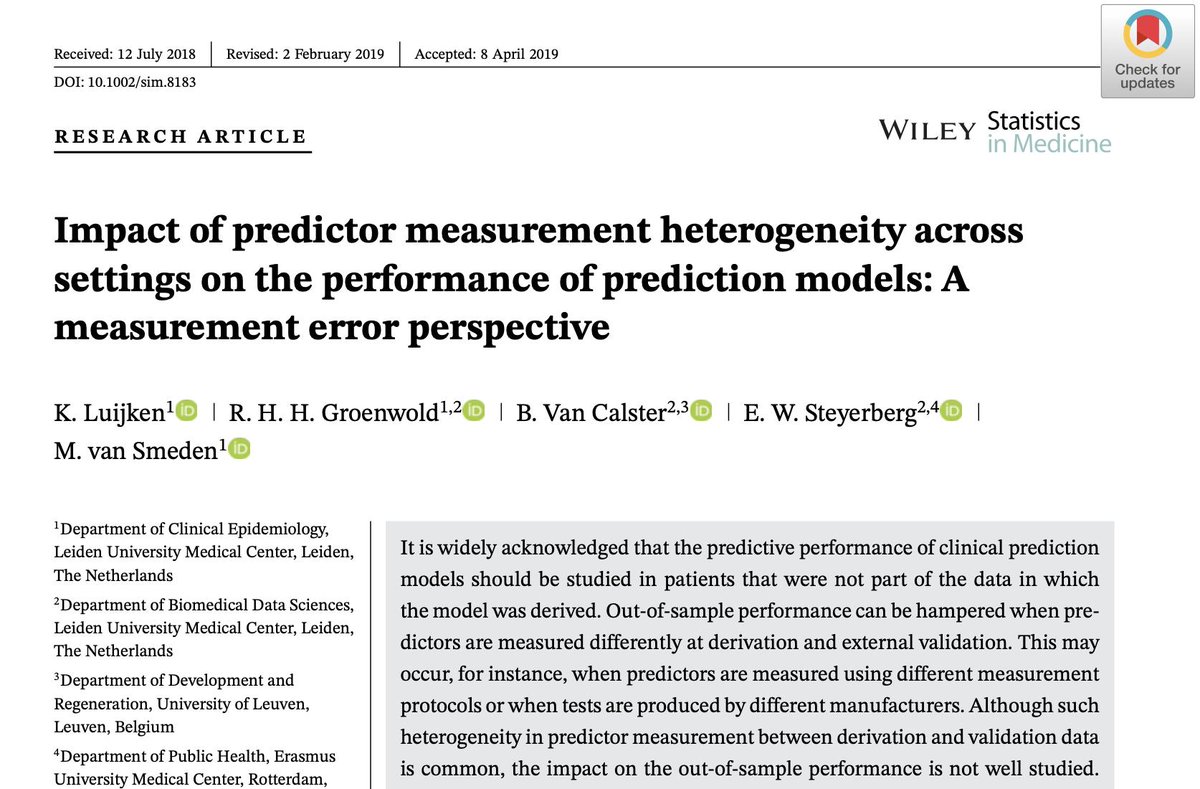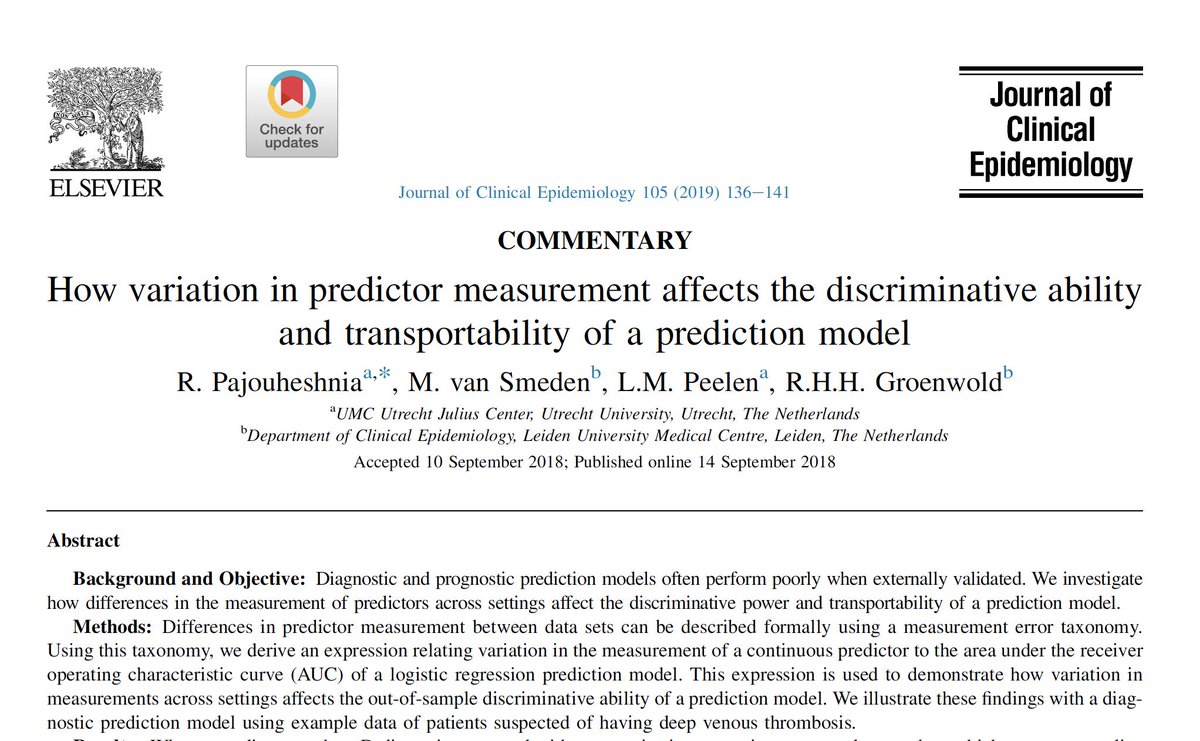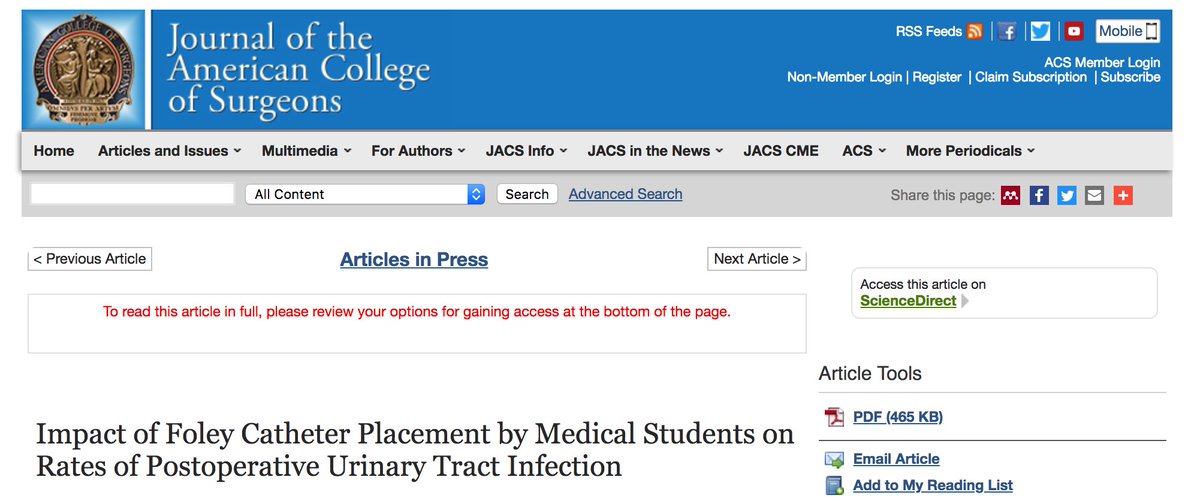The non-technical story is this:
[thread]

2/n
3/n
Some smart people have said: if a prediction model aims to predict an outcome based on predictors that are measured with error, the error itself is part of the prediction process and thus we don’t have to worry about the measurement error
4/n
Another way of thinking about that: what if the predictors are measured with a different measurement error in validation than for the derivation of the model?
5/n
6/n
Spoiler: things can go wrong
7/n
8/n

If only things were that easy…
11/n
12/n
Details in the paper: onlinelibrary.wiley.com/doi/pdf/10.100… …
13/n
Apart from modeling and sample size issues (overfitting), poor(er) predictive performance at validation of a prediction model is often contributed to heterogeneity in ‘case-mix’ (characteristics of patients and setting). But…
14/n
Again, in addition to modeling strategies, sample size, etc.
15/n
16/n
17/n
18/n
n/n







